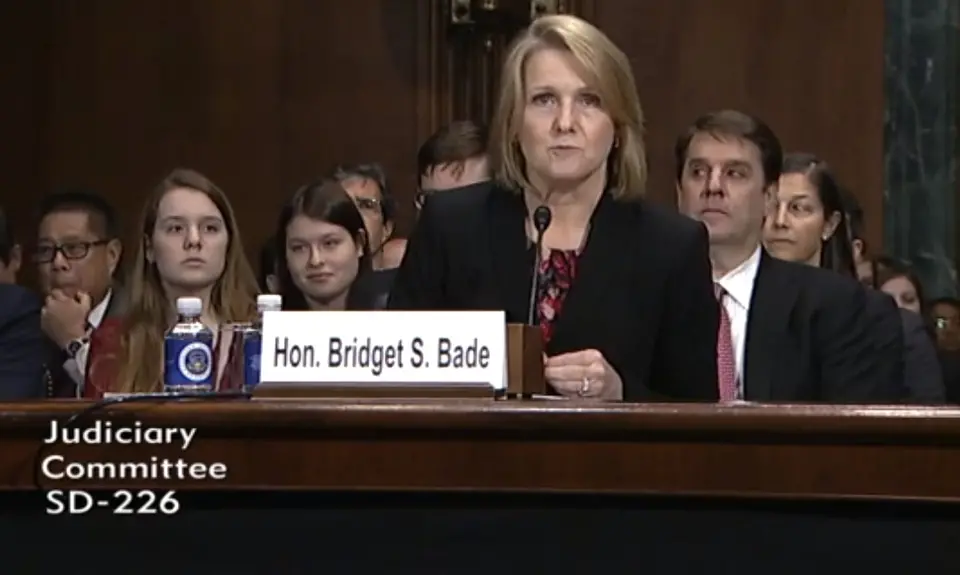“Confirmed Judges, Confirmed Fears” is a blog series documenting the harmful impact of President Trump’s judges on Americans’ rights and liberties. Cases in the series can be found by issue and by judge at this link.
Trump Ninth Circuit judge Bridget Bade dissented in the March 2020 ruling in Padilla v. Immigration and Customs Enforcement and would have allowed the government to delay asylum interviews and bond hearings in violation of due process.
Yolany Padilla entered the United States from Honduras seeking asylum. As an asylum seeker, Padilla is entitled to an interview with an asylum officer. Like all asylum seekers, if she has a well-founded fear of future persecution, she has a legal right to a bond hearing before an immigration judge.
Padilla and two other similarly situated immigrants alleged that the U.S. government unjustly delayed the interviews as well as the bond hearings. Together, they sought class certification in district court and an injunction to end these lengthy delays, as is their due process right.
The district court granted a preliminary injunction ordering the U.S. government to conduct bond hearings within seven days of the class’ request. Otherwise, they must be released. In such hearings, the government has the burden to prove that the class should not be released on bond. The government appealed.
In a 2-1 decision, the Ninth Circuit affirmed the district court’s preliminary injunction. They reasoned that the district court did not abuse its discretion in granting the injunction and the class had a due process right to a timely bond hearing.
Judge Bade dissented. She argued that Congress and the Supreme Court barred district courts from issuing such injunctions. The majority explained, however, that Congress did not explicitly bar class action injunctions and that the Supreme Court has not had occasion to rule on a case brought by a noncitizen class in removal proceedings.
Amid the Trump administration’s dangerous assault on immigrants, it is especially urgent that our courts protect basic due process rights for every individual who seeks safety in the United States. The majority ruling in this case preserves those rights; Judge Bade would not have done the same.
